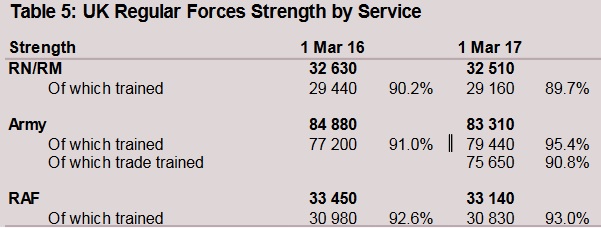Privatisation has been a huge success….playing a critical and successful role in the economy.
The network is a victim of its own success.
Britain’s railways are the most improved in Europe
It was found to deliver good value for money.
We have the safest and fastest-growing railway in Europe.
According to a Eurobarometer poll, satisfaction with rail of UK respondents is the second highest in the EU, behind Finland. The poll found that average UK satisfaction over four different areas was 78%, ahead of France (74%), Germany (51%) and Italy (39%)
The BBC seems pretty keen on the re-nationalisation of the railways and far from taking a critical look at Corbyn’s claims actually tells us they are quite attractive and could possibly work well.
Trouble is…the rail system never was really privatised as such…the government pulled a fast one and kept control whilst generously allowing private companies to pay for the privilege of running a rail franchise and also having to invest heavily in it. Corbyn however proposes we, the tax-payer, pay for everything. Some moan about the paradox that companies owned by foreign governments are running British railways so why can’t the British government run them? Hmmm…nice to have the French subsidise our railways no? Corbyn has invented a ‘problem’ the answer to which only he has the key….but the ‘problem’ is just that, an invention.
Naturally everyone has forgotten or never knew what the old British Rail was like….and they don’t actually know what the privatised system is like…we just get fed tales of misery and failure which do not represent the truth in any way…consider that passenger numbers have leapt enormously…..a service so unpopular people just can’t stop using it?
‘Since privatisation began, passenger numbers have doubled to an average of 4.5 million per day.’
What’s the truth about the privatised rail network?
This is what Labour’s Lord Adonis said in 2009 when discussing the East Coast line [which ‘failed’ due to the recession…Labour’s recession] and the rail system as a whole….
Today’s events do not represent the failure of the system, but the failure of one company. The rail franchising system was examined by the National Audit Office last year. It was found to deliver good value for money.
In respect of rail services at large, they are steadily improving. Passenger numbers are at their highest levels since the 1940s, punctuality is over 90 per cent and overall passenger satisfaction is rising, as shown in the latest independent National Passenger Survey, published yesterday. Moreover, the revenue from rail franchises is enabling us to make record investment in upgrading the network and services on it.
So the franchise system is good value for money, services are improving with high passenger satisfaction and record investment.
What did the European Union say?
Britain’s railways are the most improved in Europe, according to the most comprehensive comparison study yet published of the rail networks in all 27 EU countries.
The report looks at how the railways in Europe have progressed and improved since the 1990s according to a range of 14 different factors. Britain came top in four of the factors, second and third in another two and fourth in three, coming top overall (see footnote 1)*.
Europe’s other big rail networks – Germany, France and Italy – came 7th, 10th and 23rd respectively.
Vice-President of the Commission, Transport Commissioner Siim Kallas, said: “Europe’s railways are in transition. …..Today’s report helps us compare railways across the EU in order to identify best practice. And it shows that there are many lessons to be learnt from the UK experience.”
What did the Guardian say?
Passengers may be grumbling about the planned fare increases, but on balance rail privatisation has been a huge success.
As so often, conventional wisdom is wrong. For all the defects of a rushed privatisation, rail has evolved into a privately run public transport system playing a critical and successful role in the economy. The reality could hardly be more different to perception: passenger numbers booming, productivity rising, the number of services soaring, and customer satisfaction at near-record highs. Even those hated fare rises are not all they seem.
The Independent?
As calls grow for renationalisation, 20 years on, our Travel Correspondent Simon Calder argues that the network is a victim of its own success.
It is easy to see why Jeremy Corbyn’s pledge to renationalise the railways has wide support, including from some Conservative voters.
Yet there is an intellectual disconnect between delays, overcrowding and fares. If enough passengers regarded tickets as punitively expensive and insufficiently reliable, they would switch to other modes of transport or simply stay at home. In fact, the main problem facing train operators is one that other industries would love to have: too many customers.
Since privatisation began, passenger numbers have doubled to an average of 4.5 million per day.
Mark Smith was station manager for the key London commuter stations of Charing Cross, London Bridge and Cannon Street in the early 1990s. “BR would make cutbacks to meet budgetary targets even if this reduced revenue and lost money overall,” he recalls.
Today, Mr Smith runs the seat61.com international rail website, and observes Britain performing significantly ahead of the European pack:
“We have the safest and fastest-growing railway in Europe. We’re re-opening stations and branch lines whilst France and others contemplate closures and cuts. We are revitalising our Caledonian and Cornish sleeper services whilst the Germans prepare to surrender all of theirs at the end of this year.
And the case for a bogus ‘nationalisation’ is? This is political grandstanding of the highest order by Corbyn, an industrial-sized smoke and mirrors operation to buy votes….the ‘privatised’ railways are very successful and get high passenger satisfaction rates…and is not in reality ‘privatised’ anyway….so what benefit is there in carrying out a paper exercise of ‘re-nationalisation’ other than to fool and con the public into thinking there is a problem that Corbyn, with a bit of help from Marx, can solve?
BBC fact-checkers? Where are you?






